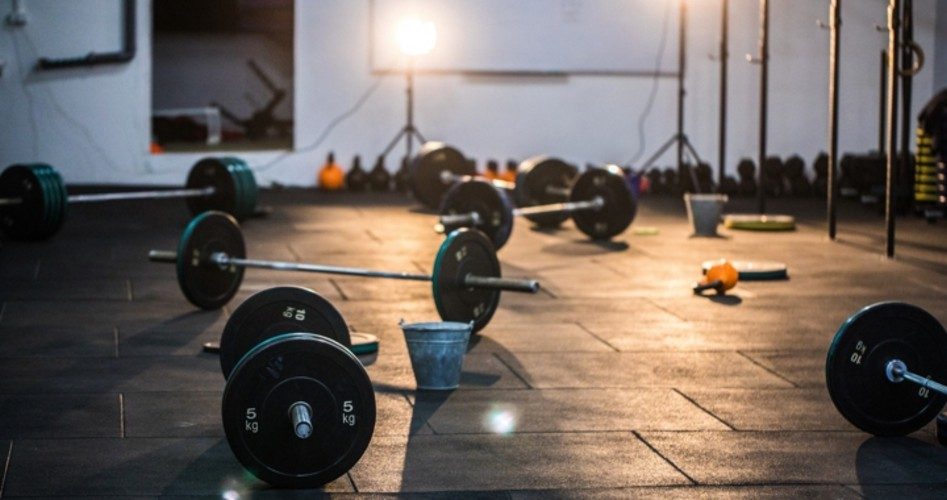
Last month, transgender athlete Mary Gregory smashed four women’s powerlifting records, sparking outcry from the athletic community over the fairness of a transgender athlete competing in women’s sports. Gregory’s victory was short-lived, however, as the 100% Raw Powerlifting Federation has determined that Gregory was not eligible to compete as a female.
Gregory had set records in women’s squat, bench press, and deadlift, and scored a Masters world total record. But the 100% Raw Powerlifting Federation contends that Gregory’s records do not hold, as he is not a female and should not have been allowed to compete.
“It was revealed that this female lifter was actually a male in the process of becoming a Transgender female,” 100% Raw Powerlifting Federation president Paul Bossi said in a statement to media on May 10. “Our rules, and the basis of separating genders for competition, are based on physiological classification rather than identification.”
“On the basis of all information presented to the Board of Directors for this particular case,” Bossi continued, “the conclusion made, is that the correct physiological classification is male.”
The Federation ultimately determined that though Gregory may identify as female, he is, in fact, a biological male and therefore ineligible to compete in the female powerlifting categories. Since the federation bases eligibility on biological sex, it has requested a copy of Gregory’s birth certificate and has demanded that he provide a urine sample while supervised by a federation official, Pink News reports.
As noted by the Daily Wire, the rules on gender identity and transgender athletes have not been clearly established in many sports are not the same across various sports. For example, the International Olympic Committee judges the gender of an athlete based on hormone levels. This means an athlete like Gregory, who has taken estrogen and testosterone blockers for 11 months before competing in the world title, would likely be eligible to compete in the Olympics.
But USA Powerlifting passed a policy last week that effectively bans transitioning athletes from competing against athletes whose gender matches their biological sex following a 46-5 vote. The board’s defense for this policy is what many critics of transgender athletes in sports have asserted.
“Men naturally have a larger bone structure, higher bone density, stronger connective tissue and higher muscle density than women,” the board wrote. “These traits, even with reduced levels of testosterone do not go away. While MTF may be weaker and less muscle than they once were, the biological benefits given them at birth still remain over than of a female.”
The 100% Raw Powerlifting Federation is in the process of reviewing its policies on the issue, but given their determination over Gregory’s records, it seems likely it will follow in the same direction as USA Powerlifting.
News that Gregory is being stripped of his records is sure to be well-received by critics who have publicly bemoaned Gregory’s participation in the women’s powerlifting events, including British Olympic medalist Sharron Davies and double Olympic champion Dame Kelly Holmes, both of whom took to Twitter to criticize Gregory’s wins.
Davies tweeted, “This is a trans woman a male body with male physiology setting a world record & winning a woman’s event in America in powerlifting. A woman with female biology cannot compete… it’s a pointless unfair playing field.”
Holmes responded in support of Davies’ tweet: “It’s a bloody joke and all getting ready for biological women to boycott certain events. Have a trans category if need be but even better a trans games.”
Fears over allowing transgender women to participate in women’s athletics has even dominated discussion over Congress’ “Equality Act” — legislation focused on prohibiting anti-LGBT discrimination in employment and housing. During congressional testimony over the Equality Act, Duke University Law School Professor Doriane Lambelet Coleman observed that biological males have an inherent athletic advantage over biological females because of the chemical makeup of their bodies, the Washington Blade reports. The intention of segregating sports based on sex was to allow individuals to compete against their own counterparts.
Even outspoken LGBT activists have raised concerns over transgender athletes. Julie Beck, a lesbian and former law and policy co-chair for Baltimore City’s LGBTQ Commission, asserts that the Equality Act would allow men to dominate women’s sports and could deny scholastic opportunities to girls who would have taken first place.
Image: miodrag ignjatovic via iStock / Getty Images Plus



